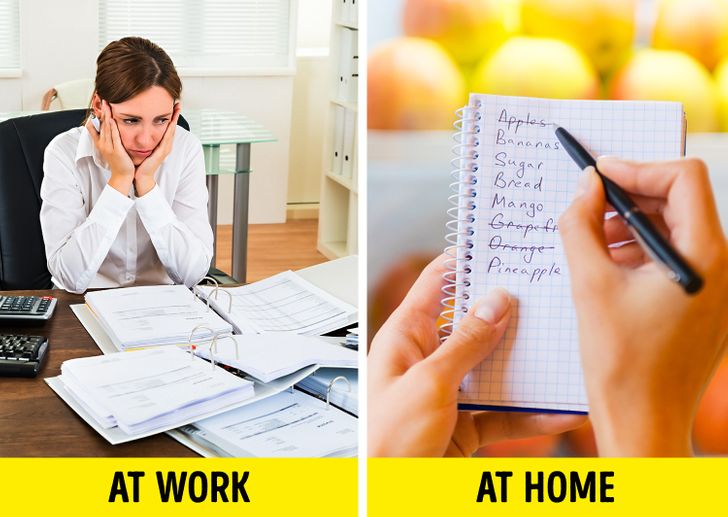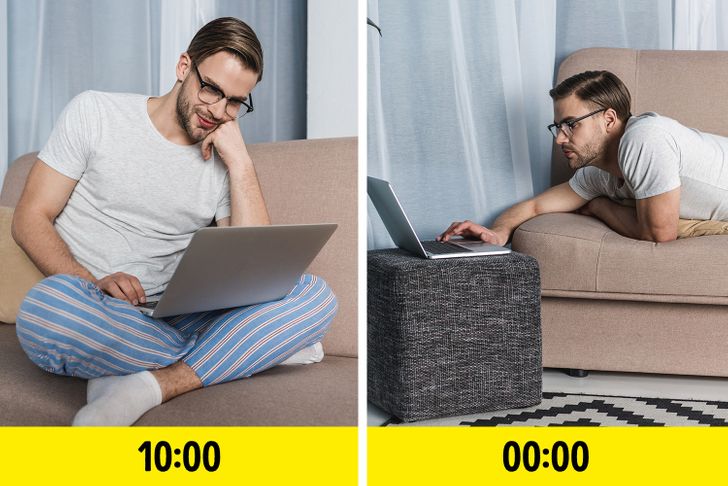According to sociological research, a person spends more than a third of their life working 40 hours a week. Of course, things that we do for such long periods influence us and our psychological features over time.
Besides the positive aspects of our job, there's also a negative side: a so-called professional personality deformation like when a businessman keeps checking his email on vacation or when a military serviceman continues commanding at home.
Bhaskar Health describes how different jobs change our personality and gathers advice on how we can learn to switch from one activity to another, so we don't become a prisoner of our work.
Military servicemen
A military serviceman's job affects them as a person and even affects their family. All family members live in an atmosphere of strict discipline. It's very easy to tell a child raised in a serviceman's family from the child of an architect or a journalist. Honor, dignity, and good physical shape are the advantages of this job. But as time passes, servicemen become tougher, more cynical, and their ability to empathize fades away. Military men feel that they should always stay unbiased and analyze situations using only logic, putting love and compassion aside. That's why it's so difficult for them to stay kind and balanced when it comes to their relatives.
Doctors
This job makes the medical professional "build" a defensive wall that includes indifference, coldness, and cynicism because they face suffering, pain, and death every day. And the peculiar humor of many doctors is a psychological defense mechanism from consistent stress and fear. A habit of hiding their emotions and treating everything calmly causes emotional detachment and an unwillingness to share problems. Doctors are used to always being ready, both physically and emotionally, to help.
Teachers
A professional teacher is able to manage a big group of kids and that's why a certain sense of strictness may appear in their home life. The qualities most often observed among teachers are: authoritativeness, conservatism, predisposition to monologues, and compliance with formalities. If a person works with kids all day long, they start treating their relatives of different ages the same, like when they're giving advice, feeling a need to always have everything prepared, and maybe even feeling like they need to explain something 10 times.
Entrepreneurs
Let's specify that a businessman isn't a job but a way of thinking and a way of life. This job often doesn't allow you to compromise and be lenient. To become successful, work should be the main purpose in one's life. That's why entrepreneurs spend 24 hours thinking about their business. Business is in a constant development cycle without any final goal. So, this type of professional is always thinking about self-development and they demand that their relatives behave the same. Also, being in a state of constant search, sometimes entrepreneurs don't even know what they actually want.
Lawyers
This job is suitable only for morally strong people because lawyers are usually under a lot of pressure. Silence is one of the main elements to consider about this job. It's not common to speak about problems, so lawyers rarely ask for help and support. These habits can cause depression and anxiety. A successful career demands a honed ability to predict all of the negative scenarios for a client. As a rule, lawyers are overloaded and hide health problems so they don't interfere with their career.
Accountants
It's very difficult for accountants to switch from work to their personal life: they are used to focused work with numbers. Meticulousness is one of the features accountants bring into their personal life. Years of monotonous, laborious work takes its toll: they cultivate tediousness and pretension. Accountants have eveything in place and complete each task due on a strict schedule. They plan their family budget carefully and consistently keep their whole house clean.
Journalists
Journalists are always in the thick of things, they usually see unpleasant and horrible things that can affect their psyche in a negative way. They also can't stay away from things that happen around them because any new information is treated as a motive to write an article. The job requires communication with different people (sometimes not really interesting or positive). Censorship also restricts journalists' ability to express their point of view and it can be disappointing. Besides, working during days off and occasional sleep deprivation exhaust the body very fast.
Psychologists
Very often, people study psychology so they know how to cope with themselves. Many psychologists study and analyze other peoples' problems because they want to find the roots of their own issues. Psychologists become emotionally exhausted because they have to constantly listen to and understand someone else's suffering and problems. Each professional knows that their clients' well-being and health heavily depend on the their psychologist's actions and this heavy responsibility may cause stress and the fear of making a fatal mistake.
Freelancers
A sociable person with great self-discipline can become a successful freelancer. But an unstable income and social vulnerability can cause permanent uncertainty. Home is the workplace for a freelancer and they have no opportunity to switch between a work and home persona. And they never have a change of scenery. Also, non-standardized working hours and constant thoughts about work can influence their life in a bad way. That's why it's very important for freelancers to self-impose a change of scenery and let themselves relax emotionally.
Architects
Architects are famous for being workaholics. There are even an overabundance of jokes about their tired appearance. Constant late nights in the office, working during days off, and a lack of sleep have negative effects on their well being. Architects' friends, as a rule, are also architects: they're just not interested in other people. Permanent emotional tension, a huge sense of responsibility, frequent conflicts with customers, creative crisis, and slight delusions of grandeur usually lead to depression among architects.
Some advice for workaholics whose work has become the meaning of their lives
- Learn how to manage your time. Try to schedule everything for the week ahead even considering time spent in transportation. There should also be entertainment on your to-do-list. This advice is good for both office workers and freelancers (especially because it's even more complicated for them to divide their work and personal life).
- Have all business meetings during the day. It will allow you to spend your evenings free on your hobby, sports, or family. First, deal with all urgent tasks so you have some rest in the afternoon.
- Learn how to ignore work. Don't take tasks home, create an email that you shouldn't check during the weekend, buy a second phone for work that you can switch off. Right after a work day, go workout, take a bath, or walk in the park.
- Plunge into your hobby. It's great if your passion is your work, but you should try to find something different you might like to do, in this case. Spenda few hours a week on your hobby so you have a change of activity.
- Forget about your post. If you manage employees, let your beloved manage everything at home. On the other hand, if you're the one who is delegated to at work, try to manage everything at home so you feel your significance.
- Say "no." To people, affairs, and events that are completely useless. Organize all action items due by priority and appreciate your precious time!
- Start delegating tasks. Don't take all the responsibility, divide tasks. Some issues may be resolved even without you. And your friends and family are always ready to help, you just need to ask them.
Are any of you doctors, architects, or the other people listed above? How do you cope with the difficulties of your work? Share your experience with us!









0Comments